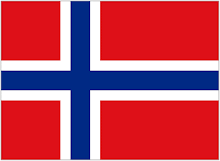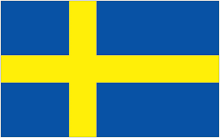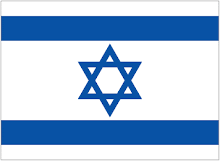I thought I would use this opportunity to highlight the outrageous approach this organisation has to border control, a nation's primary line of defence against those who wish to harm it in any way, either physically or by absorbing resources they are simply not entitled to.
A few examples are used to condemn Western countries, when the simple fact is if other countries had better human rights records, we would not be obliged to take any refugees at all. If Germany, Denmark and Holland et al are so brutal and terrible, why do the immigrants keep coming, by any means?
The reports highlight examples, but they make no suggestions as to rectifying the situation. For example, if the Belgian government wishes to deport someone and they won't come quietly, what is wrong with restraining them?
Why should the Belgian government, elected by the Belgian people, not be able to decide who it hosts within its own borders, on its own territory?
Why should Germany harbour the Third World's military deserters? Why should the Netherlands not detain people who enter illegally and make it deliberately difficult to ascertain their identity?
The following examples show everything that is wrong with the thought processes of the average Westerner; however, if you go to Amnesty's site, the reports on China, Saudi Arabia and Turkey are worth a look.
Germany
In an accelerated asylum procedure at Frankfurt Airport on 14 May, immigration authorities forcibly returned Eritrean nationals Yonas Haile Mehari and Petros Aforki Mulugeta after their asylum claims were rejected as manifestly unfounded. Both men were arrested upon arrival in Eritrea. On 20 July they were transferred to Adi Abeto prison. On 30 July, Petros Aforki Mulugeta was transferred to Wia prison. Yonas Haile Mehari, classified as a military deserter by the authorities, was transferred to his military unit where he was at risk of torture and other ill-treatment.
Amnesty International criticized the government’s discriminatory approach on the admission of Iraqi refugees. The Minister of Interior had provoked controversy in April when he announced that only Iraqi Christians would be admitted. After a public debate the policy was modified to apply to religious minorities in general and other vulnerable Iraqi refugees.
All public institutions, including those that provide social services, are required by law to report the identity of any irregular migrant to the authorities. This provision restricts migrants’ access to health care and access to judicial remedies in case of violation of their labour rights, and children’s access to education.
To conclude:
Germany again referred to diplomatic assurances as appropriate means in deportation cases where individuals may be at risk of serious human rights abuses, in violation of its obligations under international law. Irregular migrants continued to be deprived of their economic, social and cultural rights.
France
The UN Human Rights Committee expressed concern at reports of overcrowding and inadequate hygiene, food and medical care for irregular migrants and asylum-seekers – including unaccompanied minors – held in detention. It called on France to review its detention policy and improve living conditions in detention centres, especially those in the Overseas Departments and Territories.
In April, the government agency that determines the status of refugees (OFPRA) reported that the rate of recognition of asylum claims reached almost 30 per cent in 2007, one of the highest rates in recent years.
On 3 July, a bill was presented by several members of parliament to amend the right of appeal before the National Court on Asylum for asylum-seekers whose claims were being examined under the accelerated procedure. Under the new proposal asylum-seekers who were appealing against an accelerated decision could not be forcibly returned to their country of origin while their appeal was still in progress. The bill was not supported by the government.
There was also concern over a death in police custody:
On 9 May Abdelhakim Ajimi died during arrest in Grasse. Police officers arrested and restrained Abdelhakim Ajimi after an altercation in a bank where he was trying to withdraw money. A judicial investigation into the incident was opened and was still in progress at the end of the year. According to the autopsy report, Abdelhakim Ajimi died as a result of asphyxiation caused by the restraint techniques used against him. Several witnesses to the event reported an excessive use of force by the police. The officers involved remained on active duty at the end of the year.
To conclude:
Individuals having their asylum claim examined under the accelerated procedure remained at risk of forcible deportation while waiting for a decision. Despite the risk of serious human rights violations, France forcibly returned one man to Algeria and attempted to return another. New legislation authorizing indefinitely renewable “preventive detention” and a decree authorizing police to collect broad personal information on individuals believed to be a possible threat to public order, undermined the principle of the presumption of innocence.
Finland
The strict application of the “Dublin II” EU regulations saw asylum-seekers returned to the EU member state in which they first arrived for determination of their asylum claim, even when those states were less likely to provide some form of protection than Finland. The total number of “Dublin returns” from Finland increased from 320 in 2007 to at least 430 in 2008.
At least 22 asylum-seeking children were detained, including seven who were unaccompanied.
To conclude:
Asylum-seekers were sent back to EU countries where they were less likely to be offered some form of protection than if their claim had been considered in Finland.
Belgium
On 26 April, Ebenizer Sontsa, a rejected asylum-seeker from Cameroon, was forcibly restrained by several law enforcement officials during an attempted deportation from Brussels Airport. Following protests by other passengers at his treatment, the deportation was abandoned and he was returned to the immigration detention centre of Merksplas where he made a complaint of ill-treatment. A new deportation was scheduled for 9 May, but on 1 May Ebenizer Sontsa committed suicide. In December, the Public Prosecutor closed the investigation into Ebenizer Sontsa’s death.
On 24 January the European Court of Human Rights ruled that the conditions of detention of two rejected Palestinian asylum-seekers who were held in the transit zone of Brussels Airport in February 2003 for 11 days amounted to inhuman and degrading treatment. The Court also ruled that the repeated detention of the two men, in spite of judicial decisions ordering their release, constituted a violation of their right to liberty. The CERD expressed concern at the detention of asylum-seekers and the conditions of their detention.
Sweden
Ahmed Agiza and Mohammed El Zari were awarded around 3,160,000 Swedish kronor (€307,000) in compensation for the grave violations they suffered during and as a result of their unlawful deportation from Sweden to Egypt in December 2001. Both men were tortured while held incommunicado in Egypt. They had been denied access to a full and fair asylum determination process in Sweden, and were deported on the strength of worthless “diplomatic assurances” given by the Egyptian authorities.
Mohammed El Zari was released from prison in Egypt in October 2003, without ever having been charged. Ahmed Agiza remained in prison in Egypt, following an unfair trial before a military court. The Swedish government did not make a final decision on the appeals brought by both men against the rejection of their applications for residence permits in Sweden.
In June the UN Committee against Torture (CAT) called on Sweden to investigate in depth the reasons for the deportation of Mohammed El Zari and Ahmed Agiza and, if appropriate, prosecute those responsible.
In June the CAT expressed concern that the detention of asylum-seekers before deportation was common, and regretted that Swedish law provides “no absolute limit on the length of time that an asylum-seeker can be detained”.Most new applications from Iraqi asylum-seekers were rejected after the Migration Board and the Migration Court of Appeal decided that there was no internal armed conflict in Iraq. Previously, the majority of asylum-seekers from Iraq had received some form of protection.
In February, the authorities in Sweden and Iraq reached an agreement on the forcible return to Iraq of rejected asylum-seekers. Prior to this, only Iraqi nationals who agreed to be returned were accepted by the Iraqi authorities.
The Swedish authorities continued to reject applications from Eritrean asylum-seekers. This exposed them to the risk of being returned to Eritrea, despite the UNHCR’s recommendation that all states should halt forcible returns to Eritrea. At least one Eritrean national was forcibly returned from Sweden to Eritrea, in April.
In November, new legislation imposed further restrictions on the “tolerated residency” status given to foreign nationals against whom an expulsion order has been made but cannot be carried out. This includes people whose return to their country of origin has been ruled to be unsafe by the Refugee Appeals Board. In November there were believed to be 18 people with a “tolerated residency” status, including the Tunisian national referred to as S.C. The new legislation required these people to live in designated centres for asylum-seekers and to report daily to the police, in all but exceptional cases. The legislation increased to one year the maximum period of imprisonment which can be imposed for failure to comply with these requirements.
At least 11 Iraqis were forcibly returned to Iraq, contrary to the recommendations of the UNHCR, the UN refugee agency.
Some asylum-seekers who had been subjected to torture or other ill-treatment did not receive adequate medical treatment in Denmark.
In March, 60 rejected asylum-seekers were forcibly returned to Erbil in northern Iraq; in October, it was reported that a further 50 Iraqis had been returned to northern Iraq.
In March, the Asylum and Immigration Tribunal (AIT) gave its decision on an important test-case concerning humanitarian protection for asylum-seekers who have fled armed conflicts. The AIT ruled that, although there was an internal armed conflict in Iraq, the appellants in the case would not, just by virtue of being civilians, face a “serious and individual threat” if returned, and therefore were not entitled to protection under EU legislation known as the Qualification Directive. This decision would, if followed, result in even more Iraqi asylum-seekers being denied protection in the UK. By the end of the year an appeal against this decision was pending.
In August, the government finalized the abolition of Temporary Protection Visas for asylum-seekers.
In January, the government closed its offshore detention facility on the island nation of Nauru. In May, the UN Committee against Torture expressed concern that the detention facility on Christmas Island was still in use. Despite this, Australia began use of a new high security facility on the Island in December.
In July, the government announced that asylum-seekers would be temporarily detained for identity, health and security checks, but only those who posed a risk to society would remain in detention. At the end of the year, this commitment had not been implemented.
New ZealandIn July, the government tabled an Immigration Bill which had provisions for passenger screening at the point of departure to New Zealand. The Bill would allow withholding of reasons for denial of entry, and would deny the applicant access to judicial review.
Concern was expressed that the passenger screening process outlined in the Bill could expose asylum-seekers to harm if they were denied permission to board an aircraft when they were facing persecution, including possibly torture or death, in their own countries. The Bill also contained provisions that raised concerns about the possibility of prolonged and arbitrary detention.
NetherlandsThe State Secretary of Justice announced in September that asylum-seekers from central and southern Iraq would no longer be automatically entitled to protection in the Netherlands. Residence permits previously issued to Iraqis from central and southern Iraq would be withdrawn and each case would be made subject to individual review, to determine whether the individual was a refugee or otherwise in need of international protection.
At least five people were forcibly returned to northern Iraq, at least five to central Iraq and at least one to southern Iraq. Rejected asylum-seekers from Iraq were told that they were expected to return to Iraq, that they had no right to remain in the Netherlands and that they were not entitled to any support from the state, beyond the most basic emergency health care. Many, therefore, were faced with a choice between returning “voluntarily” to Iraq, despite real risks of human rights violations there, or being made forcibly destitute in the Netherlands.
According to government figures, around 4,500 irregular migrants and asylum-seekers were subject to administrative detention in the first half of 2008. They were held in detention centres under a regime designed for remand prisoners. Some were detained for excessive periods, in some cases more than a year. Alternatives to detention were used infrequently, even for people belonging to vulnerable groups, such as unaccompanied minors and victims of trafficking or torture.Not all allegations of ill-treatment in immigration detention were followed by prompt, impartial and thorough investigations.
Although the regimes for immigration detention were under review, few concrete proposals for improvement were made. The supervision and complaints mechanisms were under review, but few measures for improvement were announced, apart from the creation of a mechanism to investigate complaints of ill-treatment by officers of the Transport and Support Service, which is responsible for the transport of detained individuals.
In January the government announced reforms to the policy governing the detention of asylum-seeking families with children, including the introduction of a maximum detention period for families of two weeks prior to expulsion, and the improvement of detention conditions. However, the government indicated it would continue to detain unaccompanied minors in juvenile justice institutions.
.jpg)






















































































